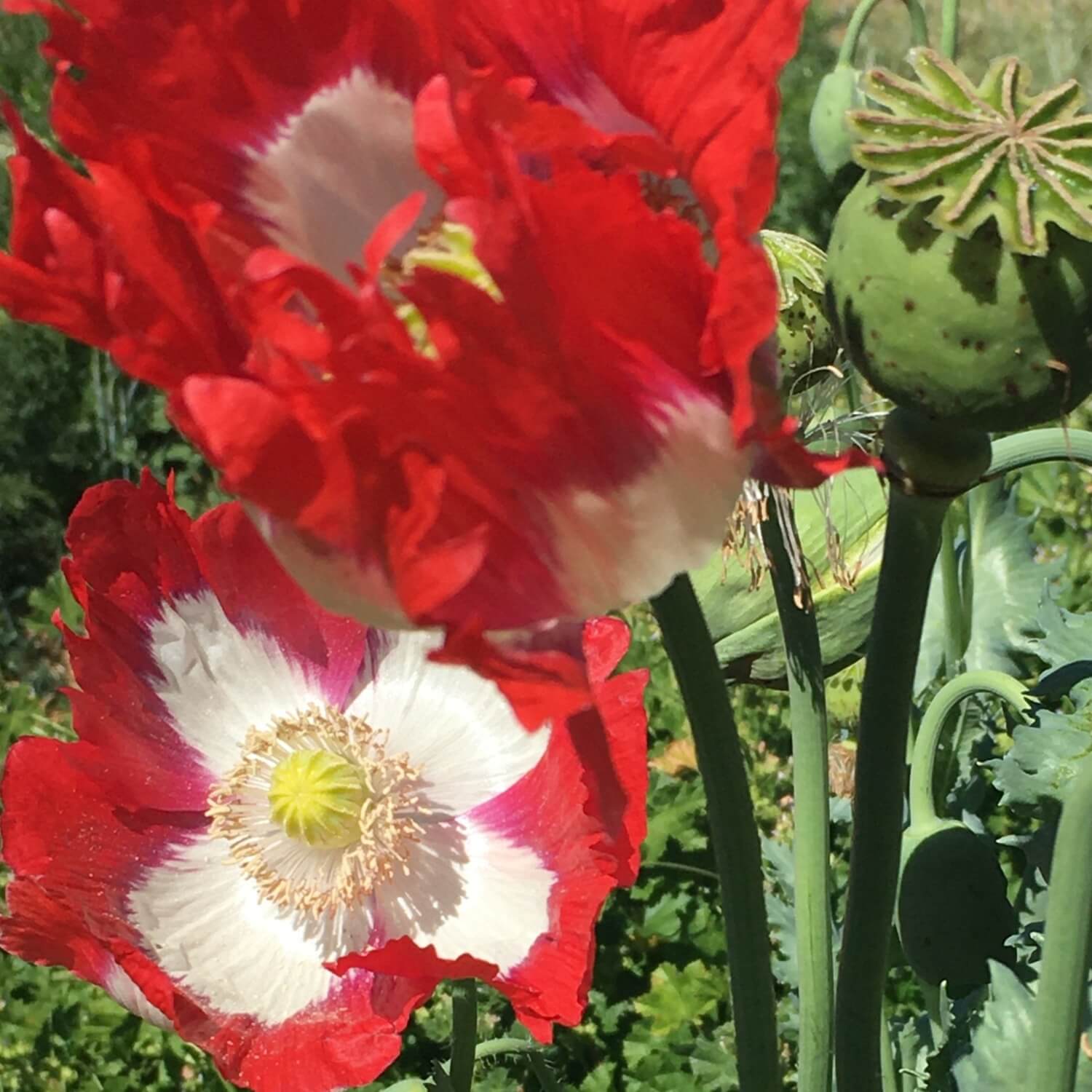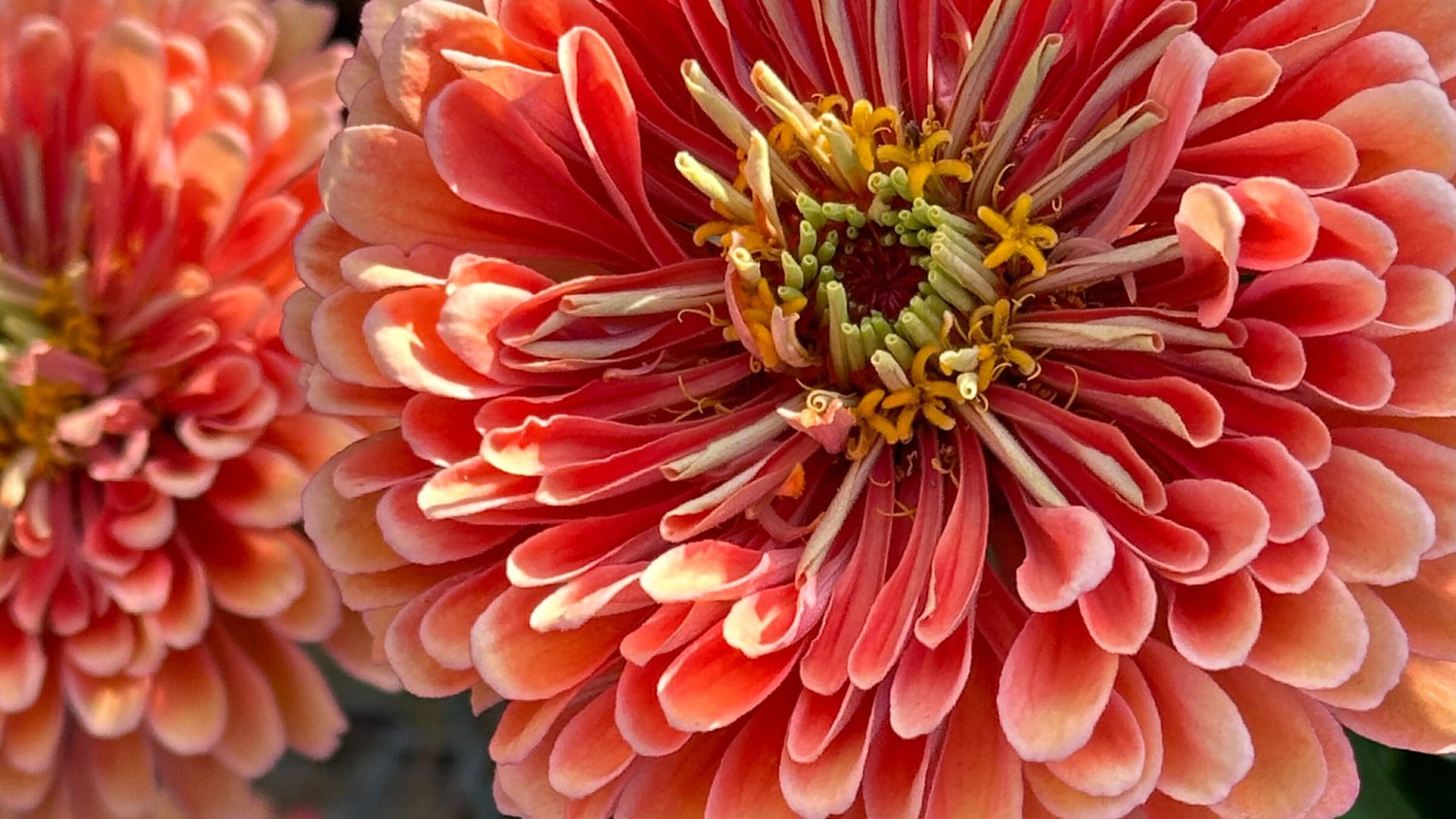Fall isn't just about planting broccoli and beets. If you are in zones 9+ get a jumpstart on your spring garden by sowing culinary and flowering herbs now. This is a great time to direct sow Cilantro, Dill, Poppies, Nigella and Calendula.
(Folks in zone 8 may also be able to plant at this time of year but a hard frost can damage plants. For those of you in cold zones heavy frost cloth or a greenhouse can greatly protect your winter plants.)
How to Plant: Draw a shallow trench in the garden soil with your hand or a tool. Sprinkle the seeds at about 4-5 seeds per foot. Cover lightly with soil no more than about 1/8-1/4 inch. The smaller the seed, the less cover it needs. My rule of thumb is: Sow seeds twice as deep as the seed is wide. Water your freshly planted seeds and keep moist for 10-14 days until germination. Covering with frost cloth/row cover at this time can speed germination and keep moisture in.
Cilantro- This culinary herb thrives in cool weather. It will jump out of the ground planted in Sept/Oct in many mild climates and can be harvested all winter in zones 9+ since it is tolerant of light to moderate frost. The herb can easily be harvested in the cool seasons and preserved in freezer bags until your tomatoes are ready for salsa next season! Luckily, the seed of cilantro, known as coriander, is also a tasty culinary spice on its own so when your cilantro starts to bolt in the spring you can just plant another round for fresh greens.
Dill- Dill is another cool weather loving herb. Planted now you will have plenty of time to enjoy the feathery and fragrant greens in salads, soups, etc. Like cilantro, the seed is also very useful in the kitchen and for preserving/pickling.
Poppies- Fall sown poppies thrive and produce large blooms by April. The seed is very small so it is important to carefully weed and prepare your seed bed. After a fall rain is an ideal time to plant poppy seed.
Sprinkle the tiny seed and don't cover it. Instead water the seed in where it will settle into cracks in the soil. The seedlings will emerge in 10-14 days and are very small; they look a little like the McDonald's arches! The small seedlings will slowly grow and become established. They will do best in a fertile location with regular winter water, hopefully provided by abundant rain. They will withstand light to moderate frost as well as occasional snow that melts off in a few days.
Nigella- Like poppies, fall seeded nigella or Love-in-a-mist will do really well in your garden. The blooms will be earlier and larger plants will result. This is because the plants have more time to establish before going to seed. Sprinkle plant your nigella in a prepared seed bed and cover by no more than 1/8-1/4 inch soil. These will reseed readily so be prepared to have these bloom every year after you first sow them!
Calendula- This prized medicinal and beneficial herb does really well in mild winter climates when fall sown and will bloom early in your spring garden. The seeds can easily be sown directly in the flower bed. They withstand light to moderate frost and can even live with light snowfall. The greens and blossoms of Calendula can be added to salads, teas and used to make medicinal oils and balms.
Enjoy the fall weather and get planting!






